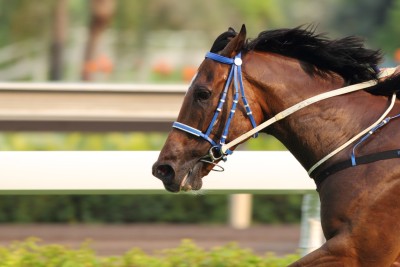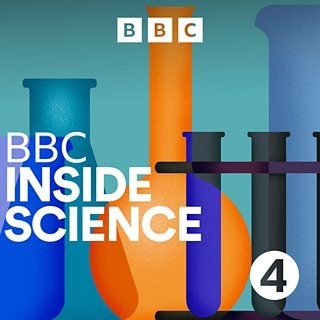Alborada Well Foal Study Part 1
Start date
January 2018End date
February 2023Overview
There is strong scientific evidence linking early colonisation of the neonatal gut with appropriate bacterial populations and the positive effects these have on the animal’s immune system. However, early-life bacterial colonisation of the equine gut is poorly understood and associations with lifelong health have not been characterised.
This project is designed to characterise two aspects of foal biology that are potentially key determinants of lifelong health: i) gut bacterial communities, and ii) the immune system.
Hypothesis
Optimal development of gut bacterial communities in early life is associated with enhanced health and performance in later life.
Aims and objectives
- Track the development of gut bacterial populations and immune system function in a cohort of 52 foals for the first year of life
- Explore potential associations between gut bacterial colonisation and immune development with key management events e.g. antibiotic use, diet, weaning method, contact with other horses
- Explore potential associations between gut bacterial populations, immune function and subsequent health, specifically susceptibility to respiratory disease, during the first three years of life
- Explore potential associations between early-life gut bacterial colonisation and summary measures of athletic performance e.g. official rating, career earnings.
This study was designed as a cohort study, tracking the health and performance of 52 foals bred for racing from birth until 3 years old. Through integration of detailed health, performance and gut microbiome data, we have been able to better understand the critical role played by early life gut bacterial communities in the lifelong health and performance of horses.
Funding amount
£480K
Funder
Team
Principal Investigator

Professor Christopher Proudman
Professor of Veterinary Clinical Science
Biography
Chris Proudman graduated from Cambridge University Vet School in 1988 and was awarded a PhD in Equine Epidemiology from University of Liverpool in 1996. His academic career has embraced teaching equine medicine and surgery, equine intestinal disease research and various leadership roles at the University of Liverpool.
He has a long-standing involvement with the horseracing industry, including veterinary work on racecourses in Northwest England and membership of the Horserace Betting Levy Board's veterinary advisory committee.
Appointed as Head of the University of Surrey's new Vet School in 2013, he leads the development and delivery of a 21st century curriculum focussed on graduate confidence and competence, and on innovation in animal health. His current research work focusses on the role of the horse's gut bacteria in intestinal health and disease.
Co-investigator

Professor Roberto La Ragione
Interim Pro-Vice Chancellor and Executive Dean for the Faculty of Health and Medical Sciences (FHMS), Professor of Veterinary Microbiology and Pathology
Biography
Roberto graduated in 1995 and then went on to study for a post graduate degree in veterinary microbiology at the Royal Veterinary College (University of London). In 1996 he moved to the government's Veterinary Laboratories Agency (VLA) to undertake a PhD on the pathogenesis of E. coli in poultry. On completion of his PhD studies, Roberto commenced a post-doctoral position at Royal Holloway, University of London, studying E. coli virulence factors and vaccine development.
Since 2001 his work has focused largely on the analysis of the colonisation, shedding and transmission of E. coli O157:H7 by all farmed animal species and he has led a number of commercial, Defra, research council (BBSRC, MRC, EPSRC, AHRC, Innovate) and EU projects in this area. He has published extensively in the area of host-microbe interaction with a particular emphasis on E. coli and Salmonella.
His current research interests focus on the pathogenesis of food-borne pathogens with a particular interest on AMR and the development of intervention strategies including vaccination, pre and probiotics for the control of bacterial pathogens such as Salmonella, Brachyspira and E. coli in food producing animals.
In 2005, Roberto was appointed Head of Pathogenesis and Control at the AHVLA and in 2010 he was appointed Professor of Veterinary Microbiology and Pathology at the University of Surrey. He gained the FRCPath in 2010 and in 2012 was appointed the Associate Dean for Veterinary Strategy in the new School of Veterinary Medicine at the University of Surrey. In 2014 he was appointed to the position of Head of the Department of Pathology and Infectious Diseases and Director of the Veterinary Pathology Centre. In 2019 he was appointed Deputy Head of the School of Veterinary Medicine at the University of Surrey. In 2021 he was appointed Head of the School of Biosciences and In 2024 Interim Pro-Vice-Chancellor and Executive Dean for the Faculty of Health and Medical Sciences.
He is the past president of the Med-Vet-Net Association and the Veterinary Research Club, the current Chair of the Humanimal Trust, a Trustee of the Houghton Trust, a member of the APHA Science Advisory Board, a member of the FSA ACMSF AMR sub-committee and the Chair of the Royal College of Pathologists Veterinary Pathology SAC. Roberto is an Associate member of the European College of Veterinary Microbiology and in 2020 he was awarded Honorary Associateship of the Royal College of Veterinary Surgeons. In 2023, Roberto was awarded the RCPath College Medal.
Research team

Rachel Cooke
Research Assistant

Dr Alex Couto Alves
Statistical Consultant

Dr Richard Ellis
Research collaborator

Dr Joy Leng
Post-doctoral Researcher

Robert Mansergh
Research Assistant

Dr Carla Moller-Levet
Statistical Consultant

Dr Ruth O'Flaherty
Research Assistant

Dr Charlie Pinkham
Collaborating veterinary surgeon

Dr Ollie Pynn
Collaborating veterinary surgeon

Dr Pat Sells
Collaborating veterinary surgeon

Dr Charlie Smith
Collaborating veterinary surgeon
News
Alborada Well Foal Study - BBC Interview

Researchers from University of Surrey's School of Veterinary Medicine and the School of Biosciences, led by Professor Chris Proudman, discussed the Alborada Well Foal Study, which investigated the composition of gut bacteria in thoroughbred foals bred for flat racing and its impact on their long-term health and athletic performance.
Alborada Well Foal Study - BBC Inside Science.

Listen to BBC Inside Science on BBC Sounds at 16:17 - 22:30 about the Alborada Well Foal Study outputs.
Outputs
Early-life gut bacterial community structure predicts disease risk and athletic performance in horses bred for racing. Leng J, Moller-Levet C, Mansergh RI, O'Flaherty R, Cooke R, Sells P, Pinkham C, Pynn O, Smith C, Wise Z, Ellis R, Couto Alves A, La Ragione R, Proudman C. Scientific Reports. 2024 Aug;14(1);17124. doi: 10.1038/s41598-024-64657-6.
Secondary output using study materials
Metagenomic investigation of the equine faecal microbiome reveals extensive taxonomic diversity. Gilroy R, Leng J, Ravi A, Adriaenssens EM, Oren A, Baker D, La Ragione RM, Proudman, C, Pallen, MJ. PeerJ. 2022. Mar;23(10); e13084. doi: 10.7717/peerj.13084.
Research groups and centres
Our research is supported by research groups and centres of excellence.
Research themes
Find out more about our research at Surrey: